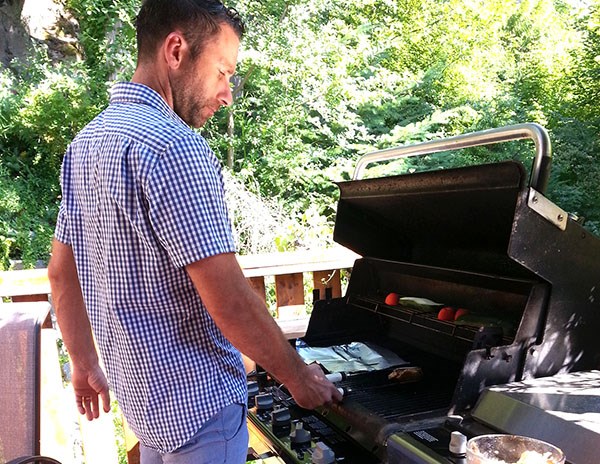It’s hot out, almost unpleasantly so and if the decision comes down to turning on the stove in your already overheated house, or your outside barbecue to make dinner, the latter wins every time.
And if using any kind of heat to prepare food in 30-degree weather feels crazy to you, remember that the art of barbecue comes from the south, from places with humid, muggy climes and ever-perspiring drinks. It’s supposed to be hot when you fire up the grill, and it’s even better when you know what you’re doing. In some houses there’s a designated barbecue specialist, but if he or she isn’t around to help out every night, you may as well figure out some of their trade secrets.
Of course, if you want to fake it, you can pick up dinner at the always-delicious Campfire Grill in downtown Squamish, but if you’re up for some moist-brow burger flipping, know that millennia of humans precede you in the fire-cooking department.
Like any art form, there are small dos and big don’ts that will make the process easier. Marinating meats, veggies or tofu in the morning is a great way to ensure a good flavour outcome, and while there’s nothing wrong with store-bought marinades, they’re easy to whip up with most kitchen condiments. Honey-garlic, spicy mustard, teriyaki – you name it, you’ll be able to make it with a few key ingredients. It’s always good to keep garlic, mustard powder, mirin, rice wine vinegar, molasses, chili flakes and liquid smoke on hand, and since they all keep you won’t have to worry about not using them up this summer season. Bonus – marinating meats prevents the creation of potentially carcinogenic HCAs (heterocyclic amines) by up to 99 per cent. They form when grilling poultry, red meat and fish, so if you can add a little flavour while protecting your heath then that’s what you call a win-win.
One of the biggest mistakes made on a barbecue grill is not trimming fat or using tinfoil to catch fatty drops. Fat is highly flammable and can do some serious carcinogenic blackening damage to your meal in a matter of moments, as well as quickly creating fire chaos on and around your grill (as my friend Liz discovered when she distractedly draped some bacon on the grill at a stagette and almost burned the entire cabin compound down).
Preheating the grill is paramount to a good, even finish for you meats and veggies. It will allow for a quick sear on the outside, and gives that delicious caramelization factor while not drying out the inside of the meat. Keeping your grill clean is also important, and don’t be afraid to rub it with an oiled cloth to prevent more delicate edibles from sticking and shredding (we’ve all lost a perfectly grilled tomato this way).
Final words of advice – tent your meat in tinfoil for 10 minutes after you take it off the grill to allow distribution of juice and flavour – it may appear an unnecessary step, but it allows you to sip your beer, spray off your kids and take a quick load off in this mid-summer heat.



